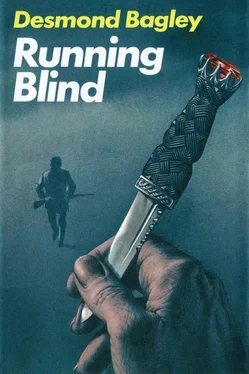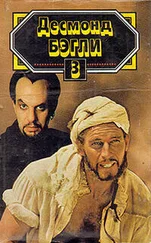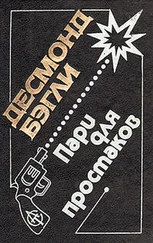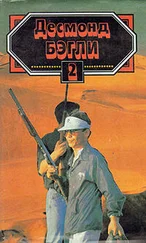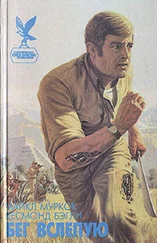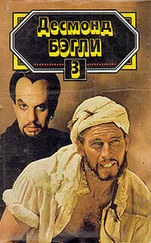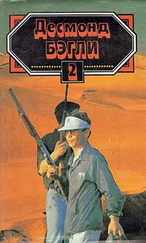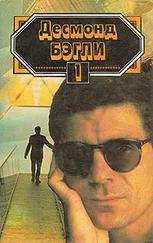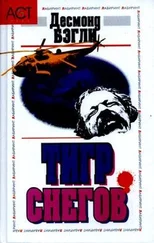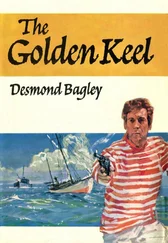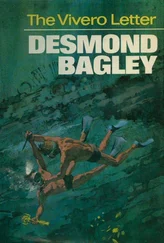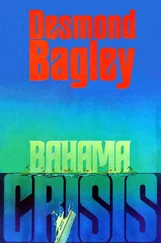‘Just passing by. This is Alan Stewart from Scotland.’
My hand was enveloped in a big paw. ‘Good to meet you,’ he said, and I had the instant feeling he meant it.
He turned to Elin. ‘You’re lucky to have caught me here. I’m leaving tomorrow.’
Elin raised her eyebrows. ‘Oh! Where for?’
‘At last they’ve decided to put a new engine into that relic of a longship they’ve given me instead of a boat. I’m taking her round to Reykjavik.’
Elin glanced at me and I nodded. In the course of events you have to be lucky sometimes. I had been wondering how Elin was going to cajole him into taking us to Keflavik without arousing too many suspicions, but now the chance had fallen right into our laps.
She smiled brilliantly. ‘Would you like a couple of passengers? I told Alan I hoped you could take us to have a look at Surtsey, but we wouldn’t mind going on to Keflavik. Alan has to meet someone there in a couple of days.’
‘I’d be glad to have company,’ Valtyýr said jovially. ‘It’s a fair distance and I’d like someone to spell me at the wheel. How’s your father?’
‘He’s well,’ said Elin.
‘And Bjarni? Has Kristin given him that son yet?’
Elin laughed. ‘Not yet — but soon. And how do you know it won’t be a daughter?’
‘It will be a boy!’ he said with certainty. ‘Are you on holiday, Alan?’ he asked in English.
I replied in Icelandic, ‘In a manner of speaking. I come here every year.’
He looked startled, and then grinned. ‘We don’t have many enthusiasts like you,’ he said.
I looked around the laboratory; it appeared to be a conventional biological set-up with the usual rows of bottles containing chemicals, the balance, the two microscopes and the array of specimens behind glass. An odour of formalin was prevalent. ‘What are you doing here?’ I asked.
He took me by the arm and led me to the window. With a large gesture he said, ‘Out there is the sea with a lot of fish in it. It’s hazy now but in good weather you can see Vestmannaeyjar where there is a big fishing fleet. Now come over here.’
He led me to a window on the other side of the room and pointed up toward Myýrdalsjökull. ‘Up there is the ice and, under the ice, a big bastard called Katla. You know Katla?’
‘Everybody in Iceland knows of Katla,’ I said.
He nodded. ‘Good! I’ve been studying the sea off this coast and all the animals in it, big and small — and the plants too. When Katla erupts sixty cubic kilometres of ice will be melted into fresh water and it will come into the sea here; as much fresh water as comes out of all the rivers of Iceland in a year will come into the sea in one week and in this one place. It will be bad for the fish and the animals and the plants because they aren’t accustomed to so much fresh water all at once. I want to find out how badly they will be hit and how long they take to recover.’
I said, ‘But you have to wait until Katla erupts. You might wait a long time.’
He laughed hugely. ‘I’ve been here five years — I might be here another ten. but I don’t think so. The big bastard is overdue already.’ He thumped me on the arm. ‘Could blow up tomorrow — then we don’t go to Keflavik.’
‘I won’t lose any sleep over it,’ I said drily.
He called across the laboratory, ‘Elin, in your honour I’ll take the day off.’ He took three big strides, picked her up and hugged her until she squealed for mercy.
I didn’t pay much attention to that because my eyes were attracted to the headline of a newspaper which lay on the bench. It was the morning newspaper from Reykjavik and the headline on the front page blared: GUN BATTLE AT GEYSIR.
I read the story rapidly. Apparently a war had broken out at Geysir to judge from this account, and everything short of light artillery had been brought into play by persons unknown. There were a few eye-witness reports, all highly inaccurate, and it seemed that a Russian tourist, one Igor Volkov, was now in hospital after having come too close to Strokkur. Mr Volkov had no bullet wounds. The Soviet Ambassador had complained to the Icelandic Minister of Foreign Affairs about this unprovoked assault on a Soviet citizen.
I opened the paper to see if there was a leading article on the subject and, of course, there was. In frigid and austere tones the leader writer inquired of the Soviet Ambassador the reason why the aforesaid Soviet citizen, Igor Volkov, was armed to the teeth at the time, since there was no record of his having declared any weapons to the Customs authorities when he entered the country.
I grimaced. Between us, Kennikin and I were in a fair way to putting a crimp into Icelandic-Soviet relations.
We left Vik rather late the next morning and I wasn’t in a good mood because I had a thick head. Valtyýr had proved to be a giant among drinkers and, since I was suffering from lack of sleep, my efforts to keep up with him had been disastrous. He put me to bed, laughing boisterously, and woke up himself as fresh as a daisy while I had a taste in my mouth as though I had been drinking the formalin from his specimen jars.
My mood wasn’t improved when I telephoned London to speak to Taggart only to find he was absent from his office. The bland official voice declined to tell me where he was but offered to pass on a message, an invitation which I, in my turn, declined to accept. The curious actions of Case had led me to wonder who in the Department was trustworthy, and I wouldn’t speak to anyone but Taggart.
Valtyýr’s boat was anchored in a creek, a short distance from the open beach, and we went out to it in a dinghy. He looked curiously at the two long, sackcloth-covered parcels I took aboard but made no comment, while I hoped they did not look too much like what they actually were. I wasn’t going to leave the rifles behind because I had an idea I might need them.
The boat was about twenty-five feet overall, with a tiny cabin which had sitting headroom and a skimpy wooden canopy to protect the man at the wheel from the elements. I had checked the map to find the sea distance from Vik to Keflavik and the boat seemed none too large. I said, ‘How long will it take?’
‘About twenty hours,’ said Valtyýr, and added cheerfully, ‘If the bastard engine keeps going. If not, it takes forever. You get seasick?’
‘I don’t know,’ I said. ‘I’ve never had the chance to find out.’
‘You have the chance now.’ He bellowed with laughter.
We left the creek and the boat lifted alarmingly to the ocean swells and a fresh breeze streamed Elin’s hair. ‘It’s clearer today,’ said Valtyýr. He pointed over the bows. ‘You can see Vestmannaeyjar.’
I looked towards the group of islands and played the part which Elin had assigned me. ‘Where is Surtsey from here?’
‘About twenty kilometres to the south-west of Heimaey — the big island. You won’t see much of it yet.’
We plunged on, the little boat dipping into the deep swells and occasionally burying her bows in the water and shaking free a shower of spray when she came up. I’m not any kind of a seaman and it didn’t look too safe to me, but Valtyýr took it calmly enough, and so did Elin. The engine, which appeared to be a toy diesel about big enough to go with a Meccano set, chugged away, aided by a crack from Valtyýr’s boot when it faltered, which it did too often for my liking. I could see why he was pleased at the prospect of having a new one.
It took six hours to get to Surtsey, and Valtyýr circled the island, staying close to shore, while I asked the appropriate questions. He said, ‘I can’t land you, you know.’
Surtsey, which came up thunderously and in flames from the bottom of the sea, is strictly for scientists interested in finding out how life gains hold in a sterile environment. Naturally they don’t want tourists clumping about and bringing in seeds on their boots. ‘That’s all right,’ I said. ‘I didn’t expect to go ashore.’
Читать дальше
Конец ознакомительного отрывка
Купить книгу
